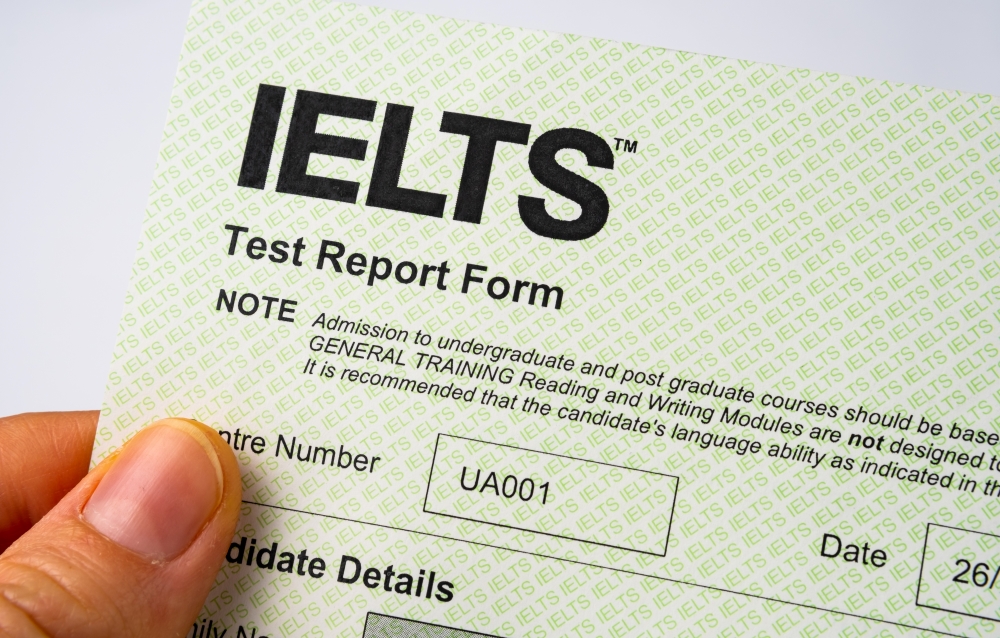For students aspiring to pursue their studies abroad, the IELTS exam holds a position of paramount importance. With millions of international students attempting this examination, it is evident that it is a crucial prerequisite for gaining admission to foreign universities.
A favorable IELTS score can be your ticket to fulfilling your academic dreams. If you’ve decided to pursue your studies abroad, it’s time to begin your IELTS preparation.
Usually, students need clarification about the IELTS registration process and the significance of the exam. In this comprehensive guide, we aim to illuminate why IELTS is vital, the eligibility criteria, the possibility of gaining admission without IELTS, and other pertinent queries. Let’s start this informative journey.
Brief Introduction to the IELTS Exam
Before delving into the specifics of the IELTS exam format, let’s have a basic understanding first:
- Exam Name: IELTS
- Full-Form: International English Language Testing System
- Conducting Body in Pakistan: Conducting Body
- IELTS Exam Structure: Comprising sections for Listening, Reading, Writing, and Speaking
- Modes of IELTS Exam: Available in both Computerized and Paper-Based formats
- Types of IELTS Exam: Distinguishing between Academic and General Training
- IELTS Scoring Range: Extending from Band-1 (Lowest) to Band-9 (Highest)
Diverse IELTS Exam Options
In the realm of IELTS examinations, two main options exist: Academic and General Training. Your choice is dependent on your unique academic and career pursuits. Moreover, the IELTS exam is adaptable in delivery, offered in both Paper-Based and Computerized formats.
Academic IELTS Test
This examination is tailored for students seeking higher education, such as Undergraduate, Postgraduate, PhD, or MBA programs, where English is integral to the academic curriculum. The Academic IELTS evaluates proficiency in speaking, writing, listening, and reading in an academic context.
General IELTS Test
On the other hand, the General Test is designed for individuals desiring to study in English-speaking countries like the USA, UK, Australia, and Canada. It’s mandatory for those wishing to enroll in vocational courses or seeking professional experience in countries where English serves as a primary communicative language. The General Test assesses the practical use of English in professional and social settings.
Deconstructing the IELTS Exam Structure
The IELTS examination consists of four key sections, each crucial in assessing one’s English language skills:
Listening: This initial section assesses listening skills common to Academic and General Training tests. It consists of two monologues and two conversations, demanding attentive listening and timely responses.
Reading: In this section, your reading and comprehension abilities are tested. In the Academic Test, candidates encounter three passages, while the General Test comprises three sections, each containing varying text lengths, necessitating close reading and accurate responses to questions.
Writing: The writing component evaluates candidates’ ability to express themselves in writing. The Academic Test consists of two tasks: summarizing data from charts, graphs, or diagrams and composing an essay on a topic. In the General Test, candidates face two tasks involving letter writing and essay composition.
Speaking: The speaking test remains consistent for both Academic and General Tests. It entails face-to-face interviews covering various general topics for 4 to 5 minutes, followed by a 2-minute speech on a topic from a cue card, with 1 minute for preparation. Examiners pose questions related to the chosen topic. The article also outlines the number of questions and durations for each section.
Deciphering IELTS Scores
The IELTS examination utilizes a 9-band scoring system, each representing a distinct level of English language proficiency. The scale ranges from Band-1 (Non-User) to Band-9 (Expert).
It’s important to note that the IELTS examination doesn’t have a concept of pass or fail. Instead, institutions often establish their minimum score requirements for English proficiency.
Frequently Asked Questions about IELTS 2024
Is the IELTS exam challenging?
The IELTS exam is relatively easy. It’s essentially an English Language Proficiency Test, and with appropriate preparation, you can confidently tackle it.
What’s the minimum band score required to pass the IELTS exam?
The IELTS exam doesn’t have a pass or fail concept. Instead, it assigns band scores to reflect your level of English proficiency. If you’re dissatisfied with your score, you can retake the exam and aim for improvement.
Is it possible to pass IELTS on the first attempt without coaching?
Yes, it’s entirely feasible to pass IELTS on your initial attempt, provided you grasp the exam’s demands and prepare adequately. Coaching is not obligatory; you can enhance your confidence by practicing with mock tests.
Embarking on your journey toward academic excellence with IELTS is an exciting endeavor. Therefore, arm yourself with diligent preparation and embrace the path to success.
Conclusion
In English-speaking nations, fluency in English is a prerequisite due to the language’s widespread use in academic programs. Having absorbed the insights in this guide, you’re now well-equipped for IELTS 2024. However, remember that the examination is just one step in your academic journey, and assistance is readily available to help you submit applications to your dream university and secure guaranteed scholarships. Why wait? Reach out to us today to explore your opportunities.

